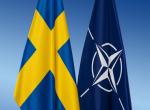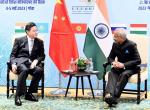India has established strategic partnerships with several countries. What exactly “strategic partnership” means is not defined or explained officially. Foreign policy experts try to define the term, but there is no definitive version as the experts have their own views on what such partnerships actually signify. There is agreement, however, on what a “strategic partnership” is not. It does not amount to an alliance, which is a relationship based on a formal document- a treaty- that carries legal obligations for the signatories. Some experts would prefer the word “entente”, but the term carries the historical odour of European balance of power politics and wars. “Entente” too is a kind of diplomatic understanding based on agreements, which a “strategic partnership” is not.
“Strategic partnership” is merely declaratory. No formal document has been signed by India that defines the term and obligations that India and its strategic partner are accepting in terms of their bilateral relations or external action in general.
Policy
India has established strategic partnerships with numerous countries, some with obvious strategic importance because of their potent international role, while others are important for India bilaterally. Given the number of strategic partners India now has, making a sense of such partnerships has practical pertinence and is no longer an academic question.
For India, to underline a commitment to build a longer-term relationship with another country by deepening bilateral ties and promoting convergence in external policies on issues of mutual interest, the concept of a “strategic partnership” is politically convenient, given our traditional perspective on international relations.
India has been historically nonaligned. Whether it was an ideology or a strategy or both can be debated. It did not suit India’s national interest to get embroiled in Cold War rivalries. Its interest was to maintain good relations with countries from both blocs and get benefits from both, which it did.
It is still in India’s interest to be on friendly terms with all countries and create beneficial partnerships wherever it can. Earlier, it was more difficult because of Cold War antagonisms that put pressure on countries to choose sides. Today it is easier as such distortions in international politics have disappeared.
Our “strategic partnerships” with countries in all the continents, some great powers and others not, some highly advanced economically and others developing or emerging economies, some established democracies and others with authoritarian regimes, is compatible with our philosophy of engaging with countries with a variety of political and economic profiles, without any desire to get caught in rivalries or threaten peace and stability.
In a sense, this is an extension of “nonalignment” in the context of the new world of globalization, interdependence, connectivity and multi-polarity. Some call this “multi-alignment”, but this is not an accurate description as India is not entering into multiple alliances. Others, more accurately, call this “strategic autonomy” as the concept conveys independence of decision making in a flexible mode.
In this perspective, it is logical for India to have strategic partnerships with US, France, UK, Germany, the European Union, Japan and Australia on the one hand, and Russia, Brazil, Nigeria, Vietnam, Kazakhstan, Afghanistan and Iran, on the other, spanning countries with radically different world views and international and regional roles, with some amongst them having serious differences with each other that could even lead to a military conflict.
Russia
India and Russia were the first to establish a strategic partnership in 2000, signalling their mutual desire to put the bilateral relationship back on track after it drifted during the westward lurch of the Yeltsin presidency. This concept suited both countries, as neither wanted any treaty based special relationship, but both wanted to preserve aspects of a special relationship inherited from the Soviet period.
For India, Russia is important for obtaining assured access to advanced defence equipment. It is important too for maintaining a balance in India’s foreign policy, especially when, with the vast improvement of India’s relations with the US, the growing perception in Russia is that India has become too west-leaning. To negate such a perception India and Russia had declared at the last summit that theirs was a “special and privileged” strategic relationship. Since then, with Russian expectations that on nuclear and defence issues and on protection of Russian investments they will get special consideration, and India finding it increasingly difficult to oblige because of legal constraints, the huge diversification of its international ties and mounting mutual stakes in relations with other countries, those misconceptions have not been effaced. It appears from President Putin’s just concluded 13th summit meeting in Delhi has helped to clear the air.
For India, a strong Russia is also important for maintaining a balance in the global system. Neither a unipolar world nor one in which China is the biggest beneficiary of Russia’s declining status suits India.
Test
France was the first western country with which India established a strategic partnership. The long-standing India-French defence ties and French willingness to engage us constructively after our nuclear tests provided the impetus for establishing such a partnership. Other major countries have followed suit so as not to be disadvantaged in relations with India, especially as the rise of India to global status is now widely accepted as a reality. The India-US strategic partnership attracts, of course, the greatest attention as it is expected to shape the strategic environment in Asia in the future, depending on how it develops.
The test of India’s “strategic partnerships” would be their contribution to India’s capacity to address its most difficult strategic challenges- those posed by China and Pakistan. Our other neighbouring countries are absent from our list of strategic partners, pointing to the concept’s deficiency in helping to secure our immediate strategic environment.
Published Date: 26th December 2012









Post new comment